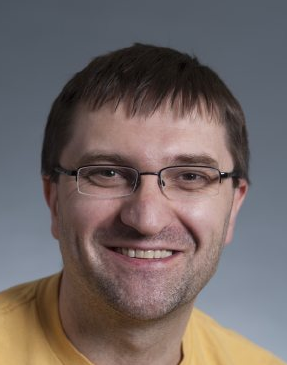Wednesday, July 11th
Raphael Jungers
Title: Provably efficient algorithms on hybrid automata
Abstract:
With the upcoming Industry 4.0, we are facing an increasing complexification of the engineered control systems, and at the same time a need for firm guarantees on optimality and safety of their control loop. Think of a plant controlled through a wireless control network, where resource constraints limit the amount of information available to the controller, while disruptions (either malicious, or intrinsic to wireless communications) may incur loss of information between the controller and the plant. With such nonstandard non-idealities, classical control theory is not able to provide exact algorithms with guarantees of performance.
Slides: Available here
I will argue that even though these new systems are far more complex than classical textbook models, advanced techniques from Mathematics, Optimization, or Computer Science sometimes allow the recovery of the powerful properties of usual control techniques. I will exemplify this on constrained switching systems, a particular class of hybrid systems. We will see that canonical problems like stability, controllability, or identifiability, may still be exactly solved, even with guarantees on the efficiency of the algorithm. I will focus on two algorithmic techniques that are particularly well suited for challenges in Hybrid Automata: Path-Complete Lyapunov functions and Chance-Constrained Optimization.
Bio:
Raphael Jungers is a FNRS Professor at UCLouvain, Belgium. His main interests lie in the fields of Computer Science, Graph Theory, Optimization and Control. He received a Ph.D. in Mathematical Engineering from UCLouvain (2008), and a M.Sc. in Applied Mathematics, both from the Ecole Centrale Paris, (2004), and from UCLouvain (2005). He has held various invited positions, at the Université Libre de Bruxelles (2008-2009), at the Laboratory for Information and Decision Systems of the Massachusetts Institute of Technology (2009-2010), at the University of L´Aquila (2011, 2013, 2016), and at the University of California Los Angeles (2016-2017). He is a FNRS, BAEF, and Fulbright fellow. He has been an Associate Editor for the IEEE CSS Conference Editorial Board, and the journals NAHS, Systems and Control Letters, and IEEE Transactions on Automatic Control. He was the recipient of the IBM Belgium 2009 award and a finalist of the ERCIM Cor Baayen award 2011. He was the co-recipient of the SICON best paper award 2013-2014.
Thursday, July 12th
Calin Belta

Title: Formal Synthesis of Control Strategies for Dynamical Systems
Abstract:
In control theory, complex models of physical processes, such as systems of differential equations, are analyzed or controlled from simple specifications, such as stability and set invariance. In formal methods, rich specifications, such as formulae of temporal logics, are checked against simple models of software programs and digital circuits, such as finite transition systems. With the development and integration of cyber physical and safety critical systems, there is an increasing need for computational tools for verification and control of complex systems from rich, temporal logic specifications.
In this talk, I will discuss a set of approaches to formal synthesis of control strategies for dynamical systems from temporal logic specifications.
I will first show how automata games for finite systems can be extended to obtain conservative control strategies for low dimensional linear and multilinear
dynamical systems. I will then present several methods to reduce conservativeness and improve the scalability of the control synthesis algorithms for more general classes of dynamics.
I will illustrate the usefulness of these approaches with examples from robotics and traffic control.
Slides: Available here
Bio:
Calin Belta is a Professor in the Department of Mechanical Engineering at Boston University, where he holds the Tegan Family Distinguished Faculty Fellowship. He is the Director of the BU Robotics Lab and of the BU Center for Autonomous and Robotic Systems (CARS) and is also affiliated with the Department of Electrical and Computer Engineering and the Division of Systems Engineering at Boston University. His research focuses on dynamics and control theory, with particular emphasis on hybrid and cyber-physical systems, formal synthesis and verification, and robotics. He received the Air Force Office of Scientific Research Young Investigator Award and the National Science Foundation CAREER Award. He is an IEEE Fellow.
Friday, July 13th
Erika Abraham

Title: Old-established methods in a new look: How HyPro speeds up reachability computations for hybrid systems
Abstract:
Reachability analysis for hybrid systems is a highly challenging task. Besides logical approaches, methods based on flowpipe construction are in use, implemented in several tools. Despite exciting developments, these tools are still not ready for large-scale applications. In this talk we discuss how well-known techniques like over-approximation, counterexample-guided abstraction refinement or parallelization can be instantiated in this context to reduce the computational effort in practice, and how these ideas are implemented in the HyPro tool.
Slides: Available here
Bio:
Erika Abraham studied Computer Science in Kiel, Germany, received her PhD from the University of Leiden, the Netherlands, and was affiliated with the University of Freiburg before she became professor at the RWTH Aachen University, Germany. Her research focus is on formal methods in general, with special weights on synthesis and analysis techniques for probabilistic and hybrid systems, including the development of satisfiability checking tools and techniques using them.